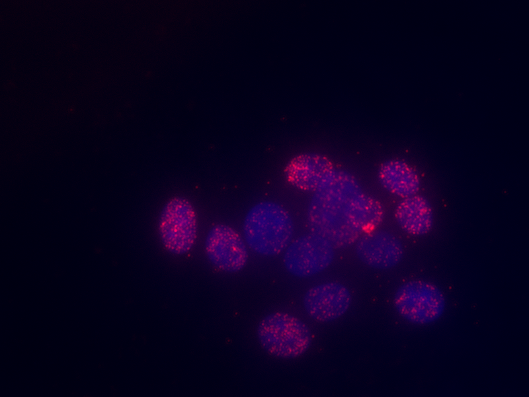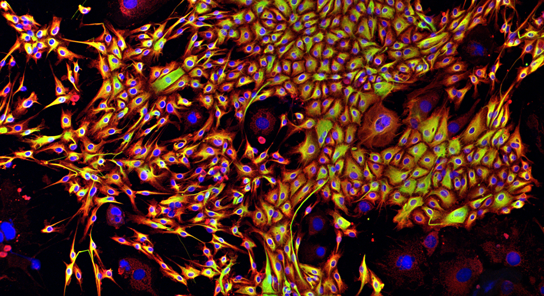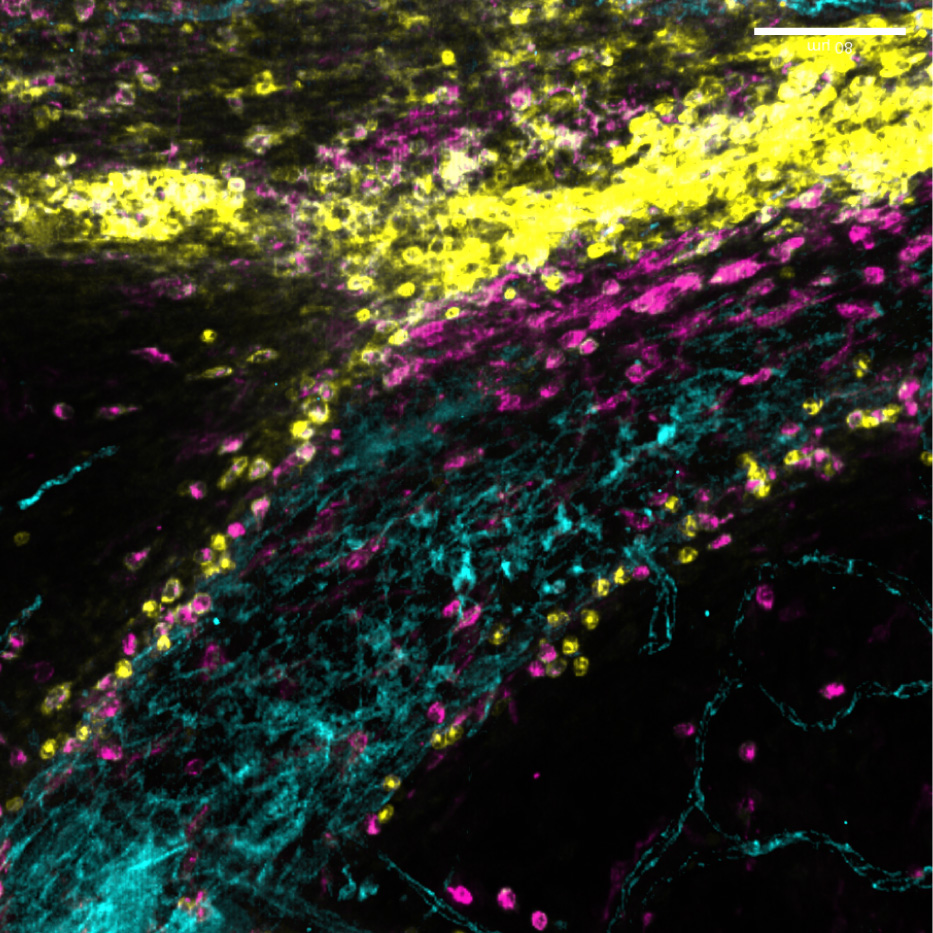Molecular switch found to drive pancreatic cancer progression

New research from our Carroll Group has identified a molecular mechanism that helps explain how pancreatic ductal adenocarcinoma progresses, offering a potential path toward more targeted treatments.
Pancreatic ductal adenocarcinoma (PDAC) is the most common type of pancreatic cancer. PDAC itself can be divided into two main types based on how genes are switched on or off. This process is controlled by proteins called transcription factors, which can change how the cancer develops and changes over time.
The team focused on one of these transcription factors, called FOXA1, which has been linked to the spread of pancreatic cancer. By studying the proteins that interact with FOXA1, the researchers found that it forms connections with another group of transcription factors known as HNF4. In particular, they discovered that one family member, HNF4G, plays a key role early in the disease.
As the cancer progresses, HNF4G activity falls and FOXA1 takes over, activating a different set of genes that promote metastasis, the process by which cancer spreads to other parts of the body. This shift represents a newly identified context specific role for these proteins “transcription factor switch”.
As a result, the discovery of HNF4G’s role in early-stage pancreatic cancer opens up a potential new way to develop targeted treatments, particularly for patients with the classical subtype of PDAC. Understanding how HNF4G and FOXA1 work together as the disease progresses could also help clinicians better classify tumours and tailor treatments to each stage of the disease.
This work was made possible with the support of the genomics, proteomics, pharmacokinetics and bioanalytics, histopathology, pre-clinical genome editing, bioinformatics and research instrumentation core facilities at the Cancer Research UK Cambridge Institute.
Prof Jason Carroll, Deputy Director and senior author, said “By leveraging our tools and insight from other cancers, we could apply our methodological approaches to identify the key proteins that drive one major subtype of pancreatic cancer. What it revealed was an unexpected, but complex process where one protein called HNF4G is critical for tumour growth, but a second protein called FOXA1 takes over to drive the cancer’s spread and metastasis. This work revealed that similar proteins can be used in completely different cancers, but it also showed that the way these proteins function can be very different from one cancer type to another. The work sheds light on the key events that ultimately culminate in pancreatic cancer growth and spread”
“Our research has revealed that pancreatic cancer cells can reprogramme themselves as the disease progresses, switching between key proteins to drive tumour growth and spread. Our work identified FOXA1 as a critical factor in this process and we now plan to investigate ways we can block its activity. This would be especially important for patients diagnosed with advanced disease, which is when FOXA1 is most active. We also aim to explore the role of other transcription factors , to build a clearer picture of how these molecular networks change over time, paving the way for more targeted and effective treatments for patients with pancreatic cancer.”
Dr Shalini Rao, Senior Research Associate and first author
Related News
See all news-

1M to advance AI powered personalised ovarian cancer care
19th February 2026
Researchers from our Brenton Group are part of an international team awarded the Global Ovarian Cancer Research Consortium’s inaugural AI Accelerator Grant.
Find out more -

Professor Sir Steve Jackson elected as a fellow of the American Association for Cancer Research
16th February 2026
Senior Group Leader Sir Steve Jackson has been elected as a Fellow of the American Association for Cancer Research Academy in the Class of 2026.
Find out more -

New immune pathway offers treatment hope for childhood brain tumours
3rd February 2026
A newly discovered immune pathway could lead to gentler treatments for multiple childhood brain cancers, according to new research from our Gilbertson Group published today in Nature Genetics.
Find out more